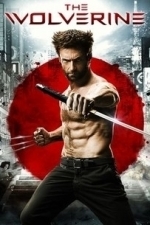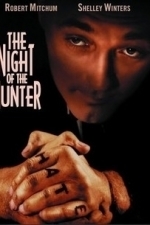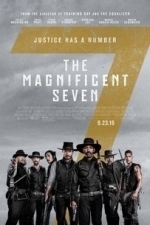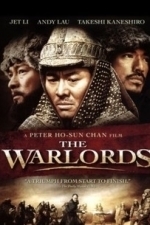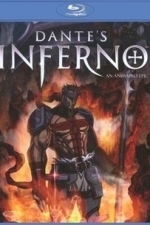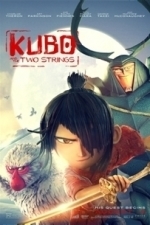Search
Gareth von Kallenbach (980 KP) rated The Wolverine (2013) in Movies
Aug 6, 2019
In 2009, we were treated to the origin story for one of Marvel’s most beloved characters: The Wolverine. Enthusiasm for the story turned to discord and malcontent for most, but if you had the ability to look past the inadequacies found in most Marvel silver-screen adaptations (as I did), then at least you would have enjoyed seeing the comic come to life.
Here in 2013, Hugh Jackman reprises his role for the 6th time, making his way to Japan to bring about one of the community’s favorite portions of the mythos: the way of the samurai, Muriko, and the Silver Samurai.
The story opens with the bombing of Nagasaki, and Logan’s survival of the atrocity. He saves a Japanese soldier from suicide, and then from the Atomic Bomb.
Fast forward to the present and we have a broken mountain man that was once Logan (Jackman). He lives in the hills, away from people, because he no longer wants to be a soldier. His immortality has become a curse.
After a rousing row with some local hunters, a representative for Yashida (the aforementioned Japanese soldier) talks Logan into going back to Japan to pay his respects to a dying man.
The story spins away from there on a turbulent ride that is equal parts drama and action.
Let’s get to my thoughts.
—————The good ———————-
The cinematography, script, acting, and editing was top-notch. The sets, costumes, effects, stunts and fight scenes were all pleasurably executed. This was a very well-made movie.
—————-The bad ————————
The plot holes were too numerous to be anything but amazingly distracting. Without giving too much away, here are just a few:
During a ceremony, in broad day light, on a huge roof, one of the main secondary characters is lurking. With as many people and security, this was HIGHLY implausible. Laughable, at best.
Ninjas are not a real thing, and they never were. They were a fable; a story told without any factual, historical basis, and their presence cheapened the film.
When the A-bomb was dropped, those who survived the actual explosion still died to the radiation within a certain range. There is no way Yashida would have survived Nagasaki the way the event was portrayed in the film.
At some point, Wolverine loses his ability to heal. It’s never clear if his regenerative powers are fully gone or just suppressed, but he can’t heal well enough to stop bleeding. With this in mind, his survival of so many shots to the body is extremely questionable.
On that same note: if he can’t heal, how did the holes made by the blades extruding from his hands heal up? After every scene in which the blades come out, his hands remain free of blood or marks.
Wolverine was clearly killing people with his claws, which I liked, but there should have been far more limb and torso severing, given how sharp his adamantium blades are and how overwhelmingly strong he is supposed to be.
The Wolverine character has an unmatched sense of smell, but it was never used in the movie, not even once. The opportunity presented itself multiple times.
These are just a few examples, and there were many more jarring discrepancies. There were so many that it detracted from the movie in an unforgivable way. Even this was totally separate from the comic-to-silver-screen transition, for which those remarks are better left to someone more learned in the comic realm.
The part I enjoyed the most came during the last 30 seconds of the film, as part of the credits. It sets up a future film. Enjoy.
All in all, The Wolverine was great. That said, if you have a critical eye, like myself, you will find many faults.
Here in 2013, Hugh Jackman reprises his role for the 6th time, making his way to Japan to bring about one of the community’s favorite portions of the mythos: the way of the samurai, Muriko, and the Silver Samurai.
The story opens with the bombing of Nagasaki, and Logan’s survival of the atrocity. He saves a Japanese soldier from suicide, and then from the Atomic Bomb.
Fast forward to the present and we have a broken mountain man that was once Logan (Jackman). He lives in the hills, away from people, because he no longer wants to be a soldier. His immortality has become a curse.
After a rousing row with some local hunters, a representative for Yashida (the aforementioned Japanese soldier) talks Logan into going back to Japan to pay his respects to a dying man.
The story spins away from there on a turbulent ride that is equal parts drama and action.
Let’s get to my thoughts.
—————The good ———————-
The cinematography, script, acting, and editing was top-notch. The sets, costumes, effects, stunts and fight scenes were all pleasurably executed. This was a very well-made movie.
—————-The bad ————————
The plot holes were too numerous to be anything but amazingly distracting. Without giving too much away, here are just a few:
During a ceremony, in broad day light, on a huge roof, one of the main secondary characters is lurking. With as many people and security, this was HIGHLY implausible. Laughable, at best.
Ninjas are not a real thing, and they never were. They were a fable; a story told without any factual, historical basis, and their presence cheapened the film.
When the A-bomb was dropped, those who survived the actual explosion still died to the radiation within a certain range. There is no way Yashida would have survived Nagasaki the way the event was portrayed in the film.
At some point, Wolverine loses his ability to heal. It’s never clear if his regenerative powers are fully gone or just suppressed, but he can’t heal well enough to stop bleeding. With this in mind, his survival of so many shots to the body is extremely questionable.
On that same note: if he can’t heal, how did the holes made by the blades extruding from his hands heal up? After every scene in which the blades come out, his hands remain free of blood or marks.
Wolverine was clearly killing people with his claws, which I liked, but there should have been far more limb and torso severing, given how sharp his adamantium blades are and how overwhelmingly strong he is supposed to be.
The Wolverine character has an unmatched sense of smell, but it was never used in the movie, not even once. The opportunity presented itself multiple times.
These are just a few examples, and there were many more jarring discrepancies. There were so many that it detracted from the movie in an unforgivable way. Even this was totally separate from the comic-to-silver-screen transition, for which those remarks are better left to someone more learned in the comic realm.
The part I enjoyed the most came during the last 30 seconds of the film, as part of the credits. It sets up a future film. Enjoy.
All in all, The Wolverine was great. That said, if you have a critical eye, like myself, you will find many faults.
Sophia (Bookwyrming Thoughts) (530 KP) rated Shadow of the Fox (Shadow of the Fox, #1) in Books
Jan 23, 2020
<b><i>I received this book for free from Publisher in exchange for an honest review. This does not affect my opinion of the book or the content of my review.</i></b>
Shadow of the Fox by Julie Kagawa brings Japanese mythology and folklore to life, taking readers on an exciting journey through feudal Japan, Kagawa weaves together three characters from different backgrounds all while introducing readers to a wide variety of demons the characters come across. The novel follows these characters as a new age approaches and the Kami Dragon is summoned, granting a wish to the one who holds the pieces of the Dragon Scroll.
Shadow of the Fox is primarily told in the two perspectives of Yumeko and Tatsumi, with the occasional addition of a third. Yumeko is a half-kitsune, half-human raised at the Silent Winds temple to hide her true kitsune nature, though she is forced to flee after everyone is slaughtered by a demon who wants to retrieve a part of the scroll. Readers interested in seeing kitsune magic coming to life on the page may find themselves disappointed as Yumeko shows little of her magic and hides her true nature from her companions.
One of those companions includes Tatsumi, a samurai from the Shadow Clan ordered to bring the Dragon Scroll regardless of the cost. Raised as a weapon, Tatsumi is taught from a young age to hide all of his emotions and thoughts from those around him as doing so would pose a danger. Not able to accomplish his mission right away, he finds himself in an unlikely alliance with Yumeko and begins to question his upbringing.
The first novel in a stunning new series, Shadow of the Fox is a magical adventure with an ominous feel throughout and will have readers wanting the sequel to the story.
<a href="https://60secondsmag.com/review-shadow-of-the-fox/">This review was originally posted on 60 Seconds Online Magazine</a>.
Shadow of the Fox by Julie Kagawa brings Japanese mythology and folklore to life, taking readers on an exciting journey through feudal Japan, Kagawa weaves together three characters from different backgrounds all while introducing readers to a wide variety of demons the characters come across. The novel follows these characters as a new age approaches and the Kami Dragon is summoned, granting a wish to the one who holds the pieces of the Dragon Scroll.
Shadow of the Fox is primarily told in the two perspectives of Yumeko and Tatsumi, with the occasional addition of a third. Yumeko is a half-kitsune, half-human raised at the Silent Winds temple to hide her true kitsune nature, though she is forced to flee after everyone is slaughtered by a demon who wants to retrieve a part of the scroll. Readers interested in seeing kitsune magic coming to life on the page may find themselves disappointed as Yumeko shows little of her magic and hides her true nature from her companions.
One of those companions includes Tatsumi, a samurai from the Shadow Clan ordered to bring the Dragon Scroll regardless of the cost. Raised as a weapon, Tatsumi is taught from a young age to hide all of his emotions and thoughts from those around him as doing so would pose a danger. Not able to accomplish his mission right away, he finds himself in an unlikely alliance with Yumeko and begins to question his upbringing.
The first novel in a stunning new series, Shadow of the Fox is a magical adventure with an ominous feel throughout and will have readers wanting the sequel to the story.
<a href="https://60secondsmag.com/review-shadow-of-the-fox/">This review was originally posted on 60 Seconds Online Magazine</a>.

Snipers vs Thieves
Games
App
Snipers vs Thieves is a REAL-TIME multiplayer heist game! Protect your stash as a deadly Sniper or...
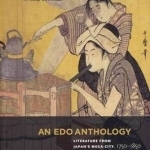
An Edo Anthology: Literature from Japan's Mega-City, 1750-1850
Sumie Jones and Kenji Watanabe
Book
During the eighteenth century, Edo (today's Tokyo) became the world's largest city, quickly...
Jeremy Workman recommended The Night of the Hunter (1955) in Movies (curated)
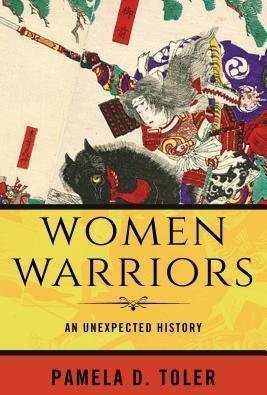
Women Warriors: An Unexpected History
Book
Who says women don't go to war? From Vikings and African queens to cross-dressing military doctors...
Gareth von Kallenbach (980 KP) rated The Magnificent Seven (2016) in Movies
Jul 15, 2019
Full disclosure, I have never seen The 1960s Magnificent Seven film, nor do I care that at its core it is a retelling of the Japanese legend of the Seven Samurai. This is not a comparison review. Instead this is a simple review of what I watched on screen. Not beholden to anything other than itself as film and it being a western.
That being said, I thoroughly enjoyed this film. The Magnificent Seven hits all the appropriate marks you would expect from a classic western. The sprawling landscapes, big gunfights against all odds, character musical cues, honor bound good guys and dastardly bad guys. The Magnificent Seven is an entertaining gallop for western fans both old and new alike.
That is not to say that this film is anything more thought provoking then a typical “White hats vs Black Hats” western story. However it is the performance of the actors and their portrayal of somewhat typical characters that is the soul and charm of the film. Led by Denzel Washington who plays Sam Chisolm, the deputized bounty hunter hired to free a simple town from under the tyranny of a rich minor who uses violence and intimidation to take what he wants. Chisolm puts together an unlikely posse of the jokester gun-shooter Josh Faraday (Chris Pratt), the civil war veteran sharpshooter Goodnight Robicheaux (Ethan Hawke), his knife welding companion Billy Rocks (Byung-hun Lee), the outlaw Vasquez (Manuel Garcia-Fulfo), the grizzly frontiersman Jack Horne (Vincent D’Onofrio) and the native warrior Red Harvest (Martin Sensmeier). Together they take on the dastardly greedy Bartholomew Bogue (Peter Sarsgaard) and his army of paid mercenaries. The entire ensemble gives solid and entertaining performances, however it is the chemistry among the cast that creates the feeling that they had a blast making this film together, much to our delight.
When we put these elements together the film works on an entertaining level. While some may find it forgettable once it is over, they will no doubt enjoy the ride along the way. In a year where the summer blockbusters have been mostly disappointing and forgettable, The Magnificent Seven is a bright spot on the film landscape than most big budget films this year.
That being said, I thoroughly enjoyed this film. The Magnificent Seven hits all the appropriate marks you would expect from a classic western. The sprawling landscapes, big gunfights against all odds, character musical cues, honor bound good guys and dastardly bad guys. The Magnificent Seven is an entertaining gallop for western fans both old and new alike.
That is not to say that this film is anything more thought provoking then a typical “White hats vs Black Hats” western story. However it is the performance of the actors and their portrayal of somewhat typical characters that is the soul and charm of the film. Led by Denzel Washington who plays Sam Chisolm, the deputized bounty hunter hired to free a simple town from under the tyranny of a rich minor who uses violence and intimidation to take what he wants. Chisolm puts together an unlikely posse of the jokester gun-shooter Josh Faraday (Chris Pratt), the civil war veteran sharpshooter Goodnight Robicheaux (Ethan Hawke), his knife welding companion Billy Rocks (Byung-hun Lee), the outlaw Vasquez (Manuel Garcia-Fulfo), the grizzly frontiersman Jack Horne (Vincent D’Onofrio) and the native warrior Red Harvest (Martin Sensmeier). Together they take on the dastardly greedy Bartholomew Bogue (Peter Sarsgaard) and his army of paid mercenaries. The entire ensemble gives solid and entertaining performances, however it is the chemistry among the cast that creates the feeling that they had a blast making this film together, much to our delight.
When we put these elements together the film works on an entertaining level. While some may find it forgettable once it is over, they will no doubt enjoy the ride along the way. In a year where the summer blockbusters have been mostly disappointing and forgettable, The Magnificent Seven is a bright spot on the film landscape than most big budget films this year.
Chris Sawin (602 KP) rated Warlords (Tau ming chong) (2010) in Movies
Jun 19, 2019
General Pang Qing Yun is the sole survivor of his entire battalion. The Ching army was taken out against Taiping rebels in Hechuan. Pang meets a woman and spends the night with her while she leaves before he wakes up the next morning. Some bandits ride into the town Pang is in. One of them, Jiang Wuyang, notices Pang and challenges him. Pang makes short work of Jiang. Jiang, impressed with Pang, introduces Pang to Zhao Er Hu. Pang follows Jiang and Er Hu back to their village where he notices that same woman he spent the night with. Her name is Lian and she's Er Hu's wife.
The village is very poor and in desperate need of food, so they decide to attack a passing food convoy. In the midst of the battle, Pang saves Jiang from certain death. The bandits successful, they bring food back to their families. Kui troops, the imperial army, invade the village and usurps the food that they stole. Now without food or money, the bandits are starving and unsure of what lies ahead for them. Pang suggests to Er Hu that they should join Lord Chen's army as they could earn wages for their families and actually have something to be proud of. Questioning Pang's reasoning since he abandoned his army once before, Jiang suggests that Pang, himself, and Er Hu take a blood oath. The pact made them blood brothers on that day.
After joining the army, their 800 soldiers go after Shu City, which has an army of 5,000. They somehow manage to get the upper hand and with the help of 1,500 imperial soldiers, they get a victory. It'll be the first of many for them as they move up in rank rapidly. With plans to overthrow Suzhou and then Nanjing, the capital, they have their work set out for them. The brothers soon begin to fall apart on their rise to the top though. Er Hu tends to be loyal with his word and his brothers no matter what as Pang will sacrifice anyone and even make deals with his enemies just to win while Jiang is stuck between them.
Let me just start this by saying, I loved this movie. The battle sequences are stunning, the cinematography was brilliant, and the acting was pretty much right on the money. The Warlords took everything I loved about Mongol and made it just a little bit better. Jet Li deserves a mention. After seeing Unleashed and Fearless, it was nice to see him actually show his acting chops. So I've wanted to see him show those off again. Luckily, he did a great job in this as he showed just about every emotion in this film at some time or another. His fight scenes were also incredible, but that comes to be expected with just about any film he's involved in. I think Andy Lau deserves a nod, as well. His character is just so passionate about being honorable and loyal that when things go wrong, his reaction is just explosive. He has some really powerful scenes where he's fighting for what he thinks is right, but I can't really mention with spoiling anything. There is a scene where he's having dinner and there's play going on that's mocking him, Pang, and Jiang. He begins to laugh, which leads to him crying uncontrollably, and then he begins laughing again. He just managed to pull it off flawlessly and I was incredibly impressed.
The battle scenes didn't pull any punches either. Blood flies across the screen as limbs roll on the ground. It's truly fantastic. They were truly the highlight of the film for me as the first half of the film doesn't seem to let up from the battlefield. The film is also extremely colorful. Every scene is stunningly vibrant. There are also so many memorable scenes from the film and half of that is due to how they were shot. There's a scene where Er Hu runs into this coliseum where there are just hundreds of dead bodies lying on the ground and the camera kind of spins around him capturing his emotions and the devastation that lies around him. It's truly something worth seeing for yourself.
The Warlords is one of the best feudal Japan films I've ever seen. If you were a fan of films like Mongol: The Rise of Genghis Khan, The Last Samurai, or Seven Samurai, then I highly recommend this.
The village is very poor and in desperate need of food, so they decide to attack a passing food convoy. In the midst of the battle, Pang saves Jiang from certain death. The bandits successful, they bring food back to their families. Kui troops, the imperial army, invade the village and usurps the food that they stole. Now without food or money, the bandits are starving and unsure of what lies ahead for them. Pang suggests to Er Hu that they should join Lord Chen's army as they could earn wages for their families and actually have something to be proud of. Questioning Pang's reasoning since he abandoned his army once before, Jiang suggests that Pang, himself, and Er Hu take a blood oath. The pact made them blood brothers on that day.
After joining the army, their 800 soldiers go after Shu City, which has an army of 5,000. They somehow manage to get the upper hand and with the help of 1,500 imperial soldiers, they get a victory. It'll be the first of many for them as they move up in rank rapidly. With plans to overthrow Suzhou and then Nanjing, the capital, they have their work set out for them. The brothers soon begin to fall apart on their rise to the top though. Er Hu tends to be loyal with his word and his brothers no matter what as Pang will sacrifice anyone and even make deals with his enemies just to win while Jiang is stuck between them.
Let me just start this by saying, I loved this movie. The battle sequences are stunning, the cinematography was brilliant, and the acting was pretty much right on the money. The Warlords took everything I loved about Mongol and made it just a little bit better. Jet Li deserves a mention. After seeing Unleashed and Fearless, it was nice to see him actually show his acting chops. So I've wanted to see him show those off again. Luckily, he did a great job in this as he showed just about every emotion in this film at some time or another. His fight scenes were also incredible, but that comes to be expected with just about any film he's involved in. I think Andy Lau deserves a nod, as well. His character is just so passionate about being honorable and loyal that when things go wrong, his reaction is just explosive. He has some really powerful scenes where he's fighting for what he thinks is right, but I can't really mention with spoiling anything. There is a scene where he's having dinner and there's play going on that's mocking him, Pang, and Jiang. He begins to laugh, which leads to him crying uncontrollably, and then he begins laughing again. He just managed to pull it off flawlessly and I was incredibly impressed.
The battle scenes didn't pull any punches either. Blood flies across the screen as limbs roll on the ground. It's truly fantastic. They were truly the highlight of the film for me as the first half of the film doesn't seem to let up from the battlefield. The film is also extremely colorful. Every scene is stunningly vibrant. There are also so many memorable scenes from the film and half of that is due to how they were shot. There's a scene where Er Hu runs into this coliseum where there are just hundreds of dead bodies lying on the ground and the camera kind of spins around him capturing his emotions and the devastation that lies around him. It's truly something worth seeing for yourself.
The Warlords is one of the best feudal Japan films I've ever seen. If you were a fan of films like Mongol: The Rise of Genghis Khan, The Last Samurai, or Seven Samurai, then I highly recommend this.
Chris Sawin (602 KP) rated Dante's Inferno (2010) in Movies
Jun 22, 2019 (Updated Jun 23, 2019)
A commercial for the Dante's Inferno video game aired during Super Bowl XLIV, which gave viewers the impression that the game would be incredibly reminiscent of games like Devil May Cry and God of War. Although I never played the game, Dante's Inferno: An Animated Epic was sent to me by the Amazon Vine program. My expectations weren't very high and that seemed to pay off in the long run. The animated feature takes the Batman: Gotham Knight approach where six different animation directors take hold of the film, but Dante's Inferno tells one semi-coherent story.
The film surely has no issue with showing graphic violence, gore, or nudity as there rarely isn't a moment in the 77 minute feature where buckets of blood aren't falling from the sky or where Dante's beloved Beatrice isn't exposing her rather well-endowed set of breasts. The changes in animation seemed rather infrequent and drastic at times while at others it felt a bit more natural. The voice acting is pretty top notch as the film utilizes voice actor veterans such as Mark Hamill, Steve Blum, and Kevin Michael Richardson.
Dante's descent through the nine circles of hell was unintentionally humorous at times though.; the main example being when he's fighting off and fleeing from the army of dead babies in Limbo. Also, his father accepting Lucifer's offer to work for him in exchange for all the gold he desired and the slaying of his mortal son wasn't surprising, but the fact that his mouth now looked like female genitalia was. Certain things just didn't add up at times. In the end, Dante's Inferno: An Animated Epic isn't terrible but isn't fantastic either. It's not worth hunting down specifically, but is worth sitting through on a rainy day afternoon or something.
The only special features included on the DVD are the EA game trailer and animatics for five scenes in the film.
For those interested in which animation studio did what, here they are in order:
Film Roman (American animation studio)
Manglobe (Samurai Champloo) picks up when Dante enters Limbo (directed by Shuko Mirase who did Ergo Proxy and Witch Hunter Robin, easily the best out of the bunch)
Dongwoo Animation handles the next four circles of Hell (unfortunately)
JM Animation steps in when Virgil and Dante reach the City of Dis
The final circle is handled by Production I.G.
The film surely has no issue with showing graphic violence, gore, or nudity as there rarely isn't a moment in the 77 minute feature where buckets of blood aren't falling from the sky or where Dante's beloved Beatrice isn't exposing her rather well-endowed set of breasts. The changes in animation seemed rather infrequent and drastic at times while at others it felt a bit more natural. The voice acting is pretty top notch as the film utilizes voice actor veterans such as Mark Hamill, Steve Blum, and Kevin Michael Richardson.
Dante's descent through the nine circles of hell was unintentionally humorous at times though.; the main example being when he's fighting off and fleeing from the army of dead babies in Limbo. Also, his father accepting Lucifer's offer to work for him in exchange for all the gold he desired and the slaying of his mortal son wasn't surprising, but the fact that his mouth now looked like female genitalia was. Certain things just didn't add up at times. In the end, Dante's Inferno: An Animated Epic isn't terrible but isn't fantastic either. It's not worth hunting down specifically, but is worth sitting through on a rainy day afternoon or something.
The only special features included on the DVD are the EA game trailer and animatics for five scenes in the film.
For those interested in which animation studio did what, here they are in order:
Film Roman (American animation studio)
Manglobe (Samurai Champloo) picks up when Dante enters Limbo (directed by Shuko Mirase who did Ergo Proxy and Witch Hunter Robin, easily the best out of the bunch)
Dongwoo Animation handles the next four circles of Hell (unfortunately)
JM Animation steps in when Virgil and Dante reach the City of Dis
The final circle is handled by Production I.G.
Gareth von Kallenbach (980 KP) rated Kubo and the Two Strings (2016) in Movies
Jul 15, 2019
If you must blink, do it now” or you might miss any number of details the
beautifully animated film, Kubo and the Two Strings, has to offer. Our
culturally rich journey begins with Kubo (Art Parkinson) and his mother
fleeing from his evil grandfather, the Moon King (Ralph Fiennes), after he
leaves Kubo with only one eye. Soon they settle in a cave where Kubo builds
a community around himself in a nearby Japanese village by using his
talents as a storyteller to charm the town’s people. With his stack of
origami papers and his shamisen that brings them to life he weaves tales of
Hanzo the Samurai. Soon though the danger his mother has tried so valiantly
to hide him from finds him and the real magic begins.
After he inadvertently summons an evil spirit from the past, Kubo is lead
on a quest by a monkey (Charlize Theron) to the far lands to recover three
pieces of a magical suit of armor. On their journey they find companionship
with a giant beetle (Matthew McConaughey) that they learn once belonged to
Kubo’s father’s army. The three are plagued by appearances from his aunts
(Rooney Mara) who try their best to keep Kubo from fulfilling his quest. In
the end Kubo is faced with having to choose immortality or to stay human
which we learn has a kind of magic all in its own.
Though I found parts of the film a bit dark for younger viewers it seems it
is a theme of the animated film studio Laika (Coraline, ParaNorman). There
was some comic relief through the banter of Charlize Theron (monkey) and
Mathew McConaughey (beetle) but the movie always circled backed to a more
serious tone. I also felt it could have done a better job of giving us a
back story about how Kubo comes to posses his magical items (origami papers
and his shamisen) and it glossed over some important details, like why his
mother is so fragile after they reach the cave, which we are left to assume
for ourselves. Kubo does however emphasize the power of our memories and
how important stories become in telling what one holds in his or her heart.
Kubo is thoughtful and weaves a story of how family shapes us but how in
the end we must forge our own path.
beautifully animated film, Kubo and the Two Strings, has to offer. Our
culturally rich journey begins with Kubo (Art Parkinson) and his mother
fleeing from his evil grandfather, the Moon King (Ralph Fiennes), after he
leaves Kubo with only one eye. Soon they settle in a cave where Kubo builds
a community around himself in a nearby Japanese village by using his
talents as a storyteller to charm the town’s people. With his stack of
origami papers and his shamisen that brings them to life he weaves tales of
Hanzo the Samurai. Soon though the danger his mother has tried so valiantly
to hide him from finds him and the real magic begins.
After he inadvertently summons an evil spirit from the past, Kubo is lead
on a quest by a monkey (Charlize Theron) to the far lands to recover three
pieces of a magical suit of armor. On their journey they find companionship
with a giant beetle (Matthew McConaughey) that they learn once belonged to
Kubo’s father’s army. The three are plagued by appearances from his aunts
(Rooney Mara) who try their best to keep Kubo from fulfilling his quest. In
the end Kubo is faced with having to choose immortality or to stay human
which we learn has a kind of magic all in its own.
Though I found parts of the film a bit dark for younger viewers it seems it
is a theme of the animated film studio Laika (Coraline, ParaNorman). There
was some comic relief through the banter of Charlize Theron (monkey) and
Mathew McConaughey (beetle) but the movie always circled backed to a more
serious tone. I also felt it could have done a better job of giving us a
back story about how Kubo comes to posses his magical items (origami papers
and his shamisen) and it glossed over some important details, like why his
mother is so fragile after they reach the cave, which we are left to assume
for ourselves. Kubo does however emphasize the power of our memories and
how important stories become in telling what one holds in his or her heart.
Kubo is thoughtful and weaves a story of how family shapes us but how in
the end we must forge our own path.
